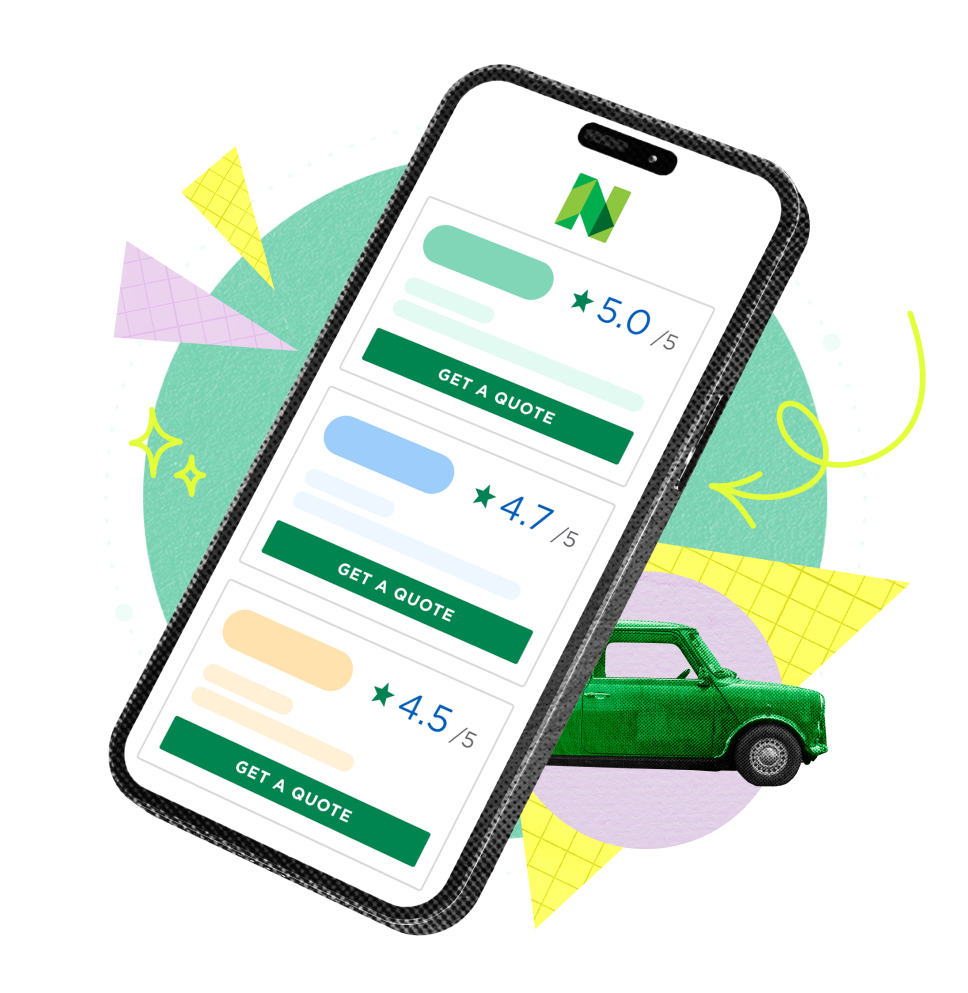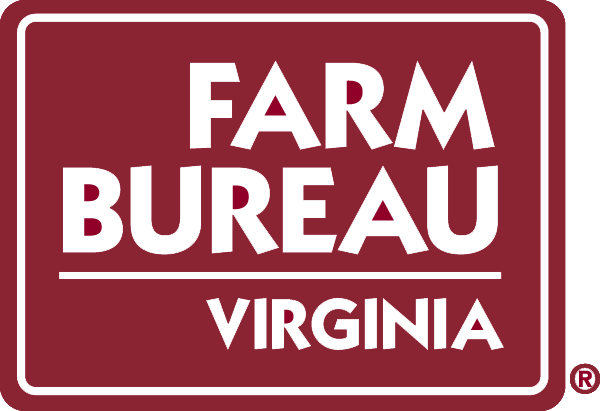Big savings start with comparing rates
Star ratings calculated by our editorial team. Rates updated October 2025. See our methodology
See details
See details
Overview
Travelers offers a broad range of coverage options and discounts to help you customize your car insurance policy.
PROS
Received fewer customer complaints than expected for auto insurance.
Lots of coverage options for auto insurance.
One of the largest insurance providers in the nation.
CONS
Rideshare insurance is not available in all states.
See details
See details
Overview
With nationwide availability and a raft of discounts, GEICO is a popular, and often affordable, choice for car insurance.
PROS
Often among the cheapest car insurance companies in NerdWallet's rates analyses.
Many discounts available.
CONS
Doesn't offer gap insurance.
Limited network of local agents.
Below average customer satisfaction for auto insurance claims in a recent J.D. Power study.
$116/mo
($1,392/year)$49/mo
($588/year)See details
See details
Overview
USAA offers insurance to active military, veterans and their families only.
PROS
High customer satisfaction ratings.
One-stop shop for insurance as well as banking and investing products.
Policies available in all states and Washington, D.C.
CONS
Available to active military, veterans and their families only.
See details
See details
Overview
Chubb insures mostly high-net-worth families and offers a number of policy perks.
PROS
Generous coverage and perks for high-end customers.
Received fewer complaints than expected for auto insurance.
CONS
Does not focus on providing cheap insurance.
Why choose NerdWallet
3M+
shoppers received car insurance offers through NerdWallet in the last year
$1,300+
savings possible when you find the cheapest car insurance for you*
150+
companies reviewed and evaluated by NerdWallet’s editorial team
*Based on national median full-coverage rates from major U.S. insurers. Learn more
Find savings in 3 easy steps
The quick way to get great coverage
Tell us the basics
Check for discounts
See your matches
Compare and Save on Car Insurance
Shopping for affordable car insurance doesn't have to be a chore. Comparing quotes and finding your best price is surprisingly quick.
If you hate paying more than you have to for car insurance, you’ll want to shop around. NerdWallet’s editorial analysis shows that average rates can vary by more than $1,300 a year from one company to another. That’s some serious potential savings.
NerdWallet’s rate comparison tool on this page can show you just how much rates vary for drivers in your area. When you continue and get a quote through us, that quote is specific to you. We recommend comparing quotes from a few companies to make sure you get the best deal.
What you need to get car insurance quotes
For smooth shopping, you’ll want to gather some key info first. You’ll need these details for all the drivers and vehicles in your household:
Drivers
- Date of birth.
- Occupation and marital status.
- Driver's license number.
- Accidents or traffic violations in the past five years.
Vehicles
- Year, make, and model.
- Vehicle identification number (VIN).
- Mileage.
- Year purchased.
- Current insurer (if applicable).
NERD TIP
If you’re shopping for other policies along with car insurance, like homeowners or renters insurance, make sure you also have information about your home on hand.
Coverage amounts
The default limits you’ll see in an online car insurance quote may not match the coverage you want to buy, so before you shop, decide how much car insurance you need.
Auto policy limits are split into three categories, often listed like “25/50/15”. In that example, here’s what each number refers to:
25
A $25,000 bodily injury limit for each person's injuries.
50
A $50,000 bodily injury limit per accident.
15
A $15,000 property damage limit per accident.
25
A $25,000 bodily injury limit for each person's injuries.
50
A $50,000 bodily injury limit per accident.
15
A $15,000 property damage limit per accident.
You can typically customize your quote by adjusting the liability limits and adding options such as comprehensive and collision coverage.
NERD TIP
If you’re happy with your current policy, grab your most recent car insurance declaration page and refer to it when choosing your policy limits.
Where to get car insurance quotes
There are three main ways to shop for car insurance, each with pros and cons. You can get car insurance quotes from:
You can call insurance companies one by one, or visit each of their websites to get individual quotes. Not sure which insurers to check? Start with our lists of the best car insurance and the cheapest car insurance companies.
PROS
You can reach out to as many companies as you’d like, including big-name insurers like State Farm that typically don’t sell their policies through independent agents.
You can often quickly customize your coverage options online to see how they impact your quote.
CONS
Requires making multiple phone calls or entering your information over and over again.
No access to smaller insurers, like Safety or Auto-Owners, that don’t sell directly to consumers.
Comparison sites let you shop with multiple companies at once. (NerdWallet offers its own comparison tool you can try.)
After you enter some basic information about yourself and your vehicle, the site will match you with one or more car insurance companies. Keep in mind that you may not see a list of personalized rates at this stage — you’ll often need to visit each company’s website individually to provide more information and get your final price.
PROS
Saves you time by shopping with several companies at once.
Ideal for users who want to buy online instead of making phone calls.
Comparison sites generally pass some of your information on to the insurer, so you don’t have to type it all in again.
CONS
Depending on your circumstances, you may not see as many options as you want.
Expect follow-up phone calls or emails, as comparison sites often share your personal information with other insurers and brokers.
May partner with a limited number of carriers.
A final option is to work with an independent insurance agent or insurance broker. This is often a local professional who will take your information by phone or in person, then shop around for insurance on your behalf. An agent or broker may be a good fit for people with complicated insurance needs — if you have a spotty driving history, for example, or you’re trying to get quotes for multiple cars, a house and an umbrella policy for extra liability coverage.
PROS
Often has access to smaller regional insurers that may not offer online quotes.
Saves you time by comparing rates for you.
Can answer questions and give personalized guidance.
CONS
Generally requires at least one initial phone call.
Your options are limited to insurance companies the agent or broker works with.
Brokers may charge a fee.
NERD TIP
We recommend comparing quotes from a few companies to make sure you get the best deal.
How to compare car insurance quotes
As you shop around, follow these steps to make sure you’re getting a good deal.
1. Check coverage limits, deductibles and features
Check that all the offers have the same coverage limits and deductibles. Note any optional features, such as roadside assistance or accident forgiveness.
If the policy limits don’t match exactly, do those other features make up for it?
Imagine three auto insurance quotes, all with the same coverage limits and deductible:
Company A: $2,000/year for standard coverage.
Company B: $2,025/year for standard coverage, plus declining deductibles.
Company C: $2,250/year for standard coverage, plus declining deductibles and accident forgiveness.
Company A offers the lowest price, but Company B reduces your collision deductible by $50 every six months. Is that worth an extra $25 a year to you? How much do you value accident forgiveness?
2. Research the companies
Pay particular attention to complaint records and customer satisfaction to make sure the company will be easy to work with if you have a claim. Auto insurance reviews are a good place to find that information.
3. Consider the whole package
If you’re shopping for another policy along with your auto insurance, such as a home or renters policy, make sure you’re happy with the price and coverage there, too. Although bundling can offer discounts and convenience, in some cases you may find better prices or coverage by buying your policies from two separate companies.
Related Articles
- The 5 Best Car Insurance Companies of October 2025
Travelers is the best car insurance company in the nation, according to NerdWallet's August 2025 analysis. American Family, Auto-Owners, State Farm and USAA also made our list.
- Cheap Car Insurance
The cheapest car insurance companies include GEICO, Progressive, State Farm and Travelers, according to NerdWallet’s 2025 analysis.
- Car Insurance Calculator: Estimate Your Insurance Costs
Get car insurance estimates for your ZIP code and learn how to get the cheapest rates.
How personal factors impact car insurance rates
Insurers set prices based on many factors and driver characteristics. Some can make finding affordable car insurance harder — and make comparing rates that much more important.
This table shows the national average rates for some of the biggest auto insurers in the country. The rates are for full coverage car insurance for a 35-year-old driver with a clean driving record.
Company | NerdWallet rating | Full coverage | Liability-only |
|---|---|---|---|
| USAA* | 5.0/5 | $139 | $28 |
| Travelers | 5.0/5 | $148 | $42 |
| Progressive | 4.5/5 | $185 | $54 |
| GEICO | 4.5/5 | $190 | $41 |
| State Farm | 5.0/5 | $205 | $42 |
| Nationwide | 4.0/5 | $206 | $71 |
| American Family | 5.0/5 | $215 | $60 |
| Allstate | 4.5/5 | $328 | $71 |
| Farmers | 4.5/5 | $374 | $98 |
Below, you'll find rates for a range of profiles, so you can see how different driver characteristics impact rates.
- Age
Your age can have a big impact on your car insurance rates. Teens pay the most, with rates typically decreasing once you hit your 30s and going up again in your 70s.
The rates below are for drivers with a clean record and good credit.
The average cost of car insurance for 20-year-old drivers is $4,686 a year for full coverage or $1,308 for minimum coverage.
Company Full coverage Minimum coverage Allstate $6,761 $1,443 American Family $4,859 $1,600 Farmers $8,004 $2,713 GEICO $3,677 $965 Nationwide $6,126 $2,305 Progressive $3,869 $1,107 State Farm $4,694 $1,193 Travelers $3,992 $1,161 USAA* $3,303 $839 *USAA is only available to military, veterans and their families.
At 40, drivers can expect to pay $2,239 a year, on average, for full coverage car insurance or $610 for minimum coverage.
Company Full coverage Minimum coverage Allstate $2,904 $750 American Family $2,557 $798 Farmers $3,790 $1,199 GEICO $1,964 $486 Nationwide $2,641 $932 Progressive $2,028 $630 State Farm $2,113 $489 Travelers $1,632 $529 USAA* $1,417 $366 *USAA is only available to military, veterans and their families.
For 60-year-old drivers, the average cost of car insurance is $1,993 a year for full coverage or $570 for minimum coverage.
Company Full coverage Minimum coverage Allstate $2,657 $712 American Family $2,346 $756 Farmers $3,205 $1,022 GEICO $1,766 $475 Nationwide $2,217 $827 Progressive $1,728 $591 State Farm $1,888 $448 Travelers $1,453 $509 USAA* $1,241 $338 *USAA is only available to military, veterans and their families.
- Driving history
Having a DUI, at-fault accident or speeding ticket on your record can cause your rates to go up — or even double. But each car insurer prices these incidents a little differently, so it’s worth shopping around for the best rates.
The rates below are for full coverage policies for 35-year-old drivers in the U.S.
The average cost of full coverage car insurance after an at-fault crash is $3,415 a year.
Company Clean record One at-fault accident Allstate $2,927 $4,546 American Family $2,559 $3,384 Farmers $3,874 $6,060 GEICO $1,983 $3,413 Nationwide $2,700 $4,323 Progressive $2,162 $3,212 State Farm $2,142 $2,719 Travelers $1,714 $2,411 USAA* $1,499 $2,159 *USAA is only available to military, veterans and their families.
The average cost of full coverage car insurance after a recent DUI is $4,274 a year.
Company Clean record Recent DUI Allstate $2,927 $4,313 American Family $2,559 $3,381 Farmers $3,874 $7,163 GEICO $1,983 $4,486 Nationwide $2,700 $5,730 Progressive $2,162 $2,880 State Farm $2,142 $3,137 Travelers $1,714 $2,968 USAA* $1,499 $2,917 *USAA is only available to military, veterans and their families.
The average cost of full coverage car insurance for a driver with a speeding ticket is $2,933 a year.
Company Clean record Recent speeding ticket Allstate $2,927 $3,727 American Family $2,559 $3,098 Farmers $3,874 $4,881 GEICO $1,983 $2,572 Nationwide $2,700 $3,559 Progressive $2,162 $2,849 State Farm $2,142 $2,434 Travelers $1,714 $2,221 USAA* $1,499 $1,824 *USAA is only available to military, veterans and their families.
- Credit
Your credit history is one of the largest factors affecting your car insurance rate. In states where it's allowed, carriers use credit history to determine how likely you are to file a claim.
California, Hawaii and Massachusetts don't allow insurers to use credit when determining car insurance rates. In Washington, the legal code around this issue is being debated.
The rates below are for full coverage car insurance in the U.S. for a 35-year-old driver with a clean driving record.
Company Good credit Poor credit Allstate $2,927 $4,366 American Family $2,559 $3,850 Farmers $3,874 $7,170 GEICO $1,983 $2,790 Nationwide $2,700 $3,839 Progressive $2,162 $3,467 State Farm $2,142 $8,253 Travelers $1,714 $2,926 USAA* $1,499 $2,722 *USAA is only available to military, veterans and their families.
- State
Because insurance regulations and cost of living vary from state to state, where you live can have a big impact on your car insurance rates. Click on your state in the map below to see our roundup of the cheapest auto insurance companies there.
NERD TIP
These are sample rates to help you shop. You'll need to get personalized quotes to find your best price.
Meet our Nerds
We've done the research so you can find the right car insurance
Works featured in
Ratings methodology
NerdWallet’s auto insurance ratings reward companies for customer-first features and practices. Our editorial team determines the ratings, based on weighted averages of scores for categories we believe highlight the best auto insurers.
Financial strength (30%): Insurers should be secure enough to reliably pay out claims, whether there is a recession or a series of natural disasters.
Consumer complaints (30%): Insurers should have a good track record with current customers, particularly compared to insurance companies of a similar size.
Ease of use (20%): Insurers should provide the information drivers need to get the right coverage and manage their policy whether they’re using a desktop or mobile device.
Affordability (20%): Insurers should offer coverage at a fair price for drivers of different ages, in different locations and with different driving histories.
We also consider J.D. Power’s customer satisfaction surveys, which include responses from thousands of consumers about their experience with insurance companies.
These ratings are a guide, but we encourage you to shop around and compare insurance quotes to find the best rate for you. NerdWallet does not receive compensation for any reviews or ratings.
Read our editorial guidelines and full ratings methodology for auto insurance for more information.
Average rates methodology
NerdWallet's editorial team analyzed rates in October 2025 based on public filings obtained by pricing analytics company Quadrant Information Services. We examined rates for men and women for all ZIP codes in all 50 states and Washington, D.C.
In our analysis, “good drivers” had no moving violations on record; a “good driving” discount was included for this profile. Our “good” and “poor” credit rates are based on credit score approximations and do not account for proprietary scoring criteria used by insurance providers.

35 years old
Single. Male or female.

2022 Toyota Camry LE
12,000 annual miles driven.

Good driving record and credit
No moving violations.
"Good driving" discount applied.
Good credit-based insurance score.
Bodily injury liability coverage
$100,000 per person. $300,000 per crash.
Property damage liability coverage
$50,000 per crash.
Uninsured motorist bodily injury coverage
$100,000 per person. $300,000 per crash.
Collision coverage
With a $1,000 deductible.
Comprehensive coverage
With a $1,000 deductible.
- See characteristics for other driver profiles
We used the same assumptions for all other driver profiles, with the following exceptions:
For driver ages, we analyzed rates for drivers aged 20, 30, 40, 50, 60 and 70 in addition to our base driver profile of a 35-year-old.
For drivers with minimum coverage, we adjusted the numbers above to reflect only the minimum coverage required by law in the state.
We changed the credit tier from “good” to “poor” as reported to the insurer to see rates for drivers with poor credit. In states where credit isn’t taken into account, we only used rates for “good credit.”
For drivers with one at-fault crash, we added a single at-fault crash costing $10,000 in property damage.
For drivers with a DUI, we added a single drunken-driving violation.
For drivers with a ticket, we added a single speeding violation for driving 16 mph over the speed limit.
In states where required, minimum additional coverages were added. Some policies include additional coverage at the insurer’s discretion.
We used a 2022 Toyota Camry LE in all cases and assumed 12,000 annual miles driven.
Insurer complaints methodology
NerdWallet's editorial team examined complaints received by state insurance regulators and reported to the National Association of Insurance Commissioners in 2021-2023. To assess how insurers compare to one another, the NAIC calculates a complaint index each year for each subsidiary, measuring its share of total complaints relative to its size, or share of total premiums in the industry.
To evaluate a company’s complaint history, our editorial team calculated a similar index for each insurer, weighted by market shares of each subsidiary, over the three-year period. NerdWallet conducts its data analysis and reaches conclusions independently and without the endorsement of the NAIC. Ratios are determined separately for auto, home (including renters and condo) and life insurance.
Where can I compare car insurance?
You can compare car insurance on NerdWallet, by going directly to insurer websites or by working with an agent.
Why are my car insurance quotes so high?
You’re more likely to pay higher rates for car insurance if you’ve had a recent at-fault accident or DUI, you live in an urban area or you have poor credit, among other factors. For more information, see Why Is My Car Insurance So High?
Where can I get cheap car insurance?
Start by reading NerdWallet’s analysis of the cheapest car insurance, and then compare rates online from companies that offer the cheapest rates in your state. You can also work with an independent agent, who can get quotes from a variety of insurers. See how to get the cheapest car insurance rates.
What’s the fastest way to compare car insurance?
It depends. If you don’t want to do the work yourself, you can contact an independent insurance agent. They’ll be able to pull quotes from multiple insurers on your behalf, so you can compare each company to see which is best for you. You can also try using an online comparison site to shop with several insurers at once.
Which car insurance is best?
The best insurance companies offer great customer service, a variety of coverage types to choose from, plus plenty of discounts and perks. You can read NerdWallet’s roundup of the best car insurance in the country to see our top picks. Spoiler alert: right now Travelers is the best company overall.
Why will my car insurance quote be different from the rates I see?
A car insurance rate is a projection of how certain characteristics might affect what a driver pays, based on publicly available data about how insurers set their prices.
A car insurance quote is an estimate of what you might pay for an auto policy, based on the vehicle and driver information you provide to an insurance company.
A car insurance premium is determined once the insurer gathers even more information about you. It's the actual price you'll pay when the policy is issued.
The prices on this page are the medians of thousands of rates provided by Quadrant Information Services and analyzed by NerdWallet's editorial team.
Learn more about car insurance

Need help choosing car insurance?
Our insurance experts are here to help you find the perfect coverage for your vehicle and budget.
Insurance Services offered through NerdWallet Insurance Experts, LLC. (AZ resident license no. 3003649891) License info
Insurance Services offered through NerdWallet Insurance Experts, LLC. (AZ resident license no. 3003649891) License info


















